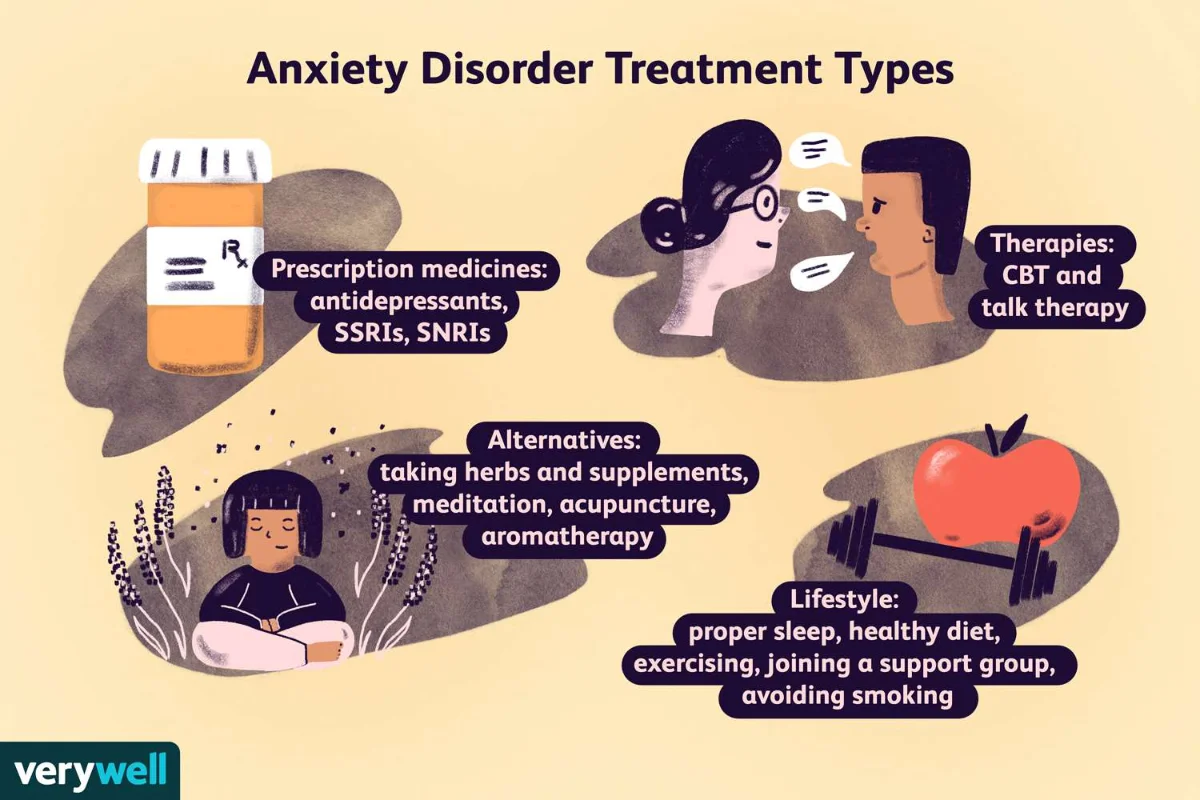Anxiety can feel like it comes out of nowhere, but often it is caused or made worse by negative thoughts, poor coping skills, or deep-seated beliefs. Psychotherapy, also known as talk therapy, can help by addressing the root causes of anxiety, such as false beliefs, past trauma, or social difficulties. By tackling these issues, you can start to heal from the inside out.
Types of Psychotherapy for Anxiety
There are several types of psychotherapy that can help with anxiety. Here are some of the most common options:
1. Cognitive Behavioral Therapy (CBT)
CBT is the most widely used therapy for anxiety. It helps you change unrealistic or negative thoughts and behaviors. For example, it teaches you to challenge fears about worst-case scenarios and uses techniques like exposure therapy to face your anxieties.
- How it works: You meet with a therapist once a week for 3–5 months to focus on specific issues.
- What it helps with: OCD, generalized anxiety disorder (GAD), and acute stress disorder.
2. Acceptance and Commitment Therapy (ACT)
ACT is based on the idea that trying to avoid painful thoughts and feelings can make things worse. Instead, it teaches you to accept these feelings without judgment and take action based on your values.
- How it works: ACT uses mindfulness and behavior-changing strategies. It can be done individually or in groups, and it can be short-term or long-term.
- What it helps with: Anxiety, stress, and emotional struggles.
3. Exposure Therapy
Exposure therapy is a type of CBT that helps you face your fears in a safe and controlled way. By gradually exposing yourself to what triggers your anxiety, you can learn to manage it better.
- What it helps with: Phobias, panic disorder, social anxiety, OCD, and PTSD.
4. Mindfulness-Based Cognitive Therapy (MBCT)
MBCT combines mindfulness meditation with CBT techniques. It helps you stay present, identify negative thoughts, and manage anxiety symptoms like rapid breathing or racing thoughts.
- How it works: Usually done in groups, but can also be done individually.
- What it helps with: Various anxiety disorders, often used alongside other treatments.
5. Psychodynamic Therapy
This therapy focuses on how past experiences and unconscious feelings influence your current behavior. By exploring these hidden emotions, you can make healthier choices.
- How it works: You discuss your thoughts, feelings, and even dreams to uncover deeper issues.
- What it helps with: Anxiety rooted in past trauma or unresolved emotions.
6. Dialectical Behavior Therapy (DBT)
DBT combines individual therapy and group skills training. It focuses on emotional regulation, relationships, and problem-solving. It also uses mindfulness techniques to help you stay calm in the moment.
- What it helps with: Anxiety, emotional regulation, and mindfulness.
7. Interpersonal Psychotherapy (IPT)
IPT focuses on improving your relationships and social skills. While not specifically designed for anxiety, it can help if your anxiety is tied to relationship problems.
- What it helps with: Anxiety related to social interactions or communication issues.
Which Therapy is Best for You?
There’s no one-size-fits-all solution for anxiety. The best therapy depends on your needs:
- Relationship stress? Try IPT.
- Past trauma? Consider psychodynamic therapy.
- Negative thought patterns? CBT might be the best choice.
How Therapy Helps with Anxiety
Therapy is effective for anxiety because it helps you:
- Identify and change negative thoughts.
- Learn healthy coping skills.
- Address underlying issues like trauma or poor social skills.
- Get support and guidance from a professional.

